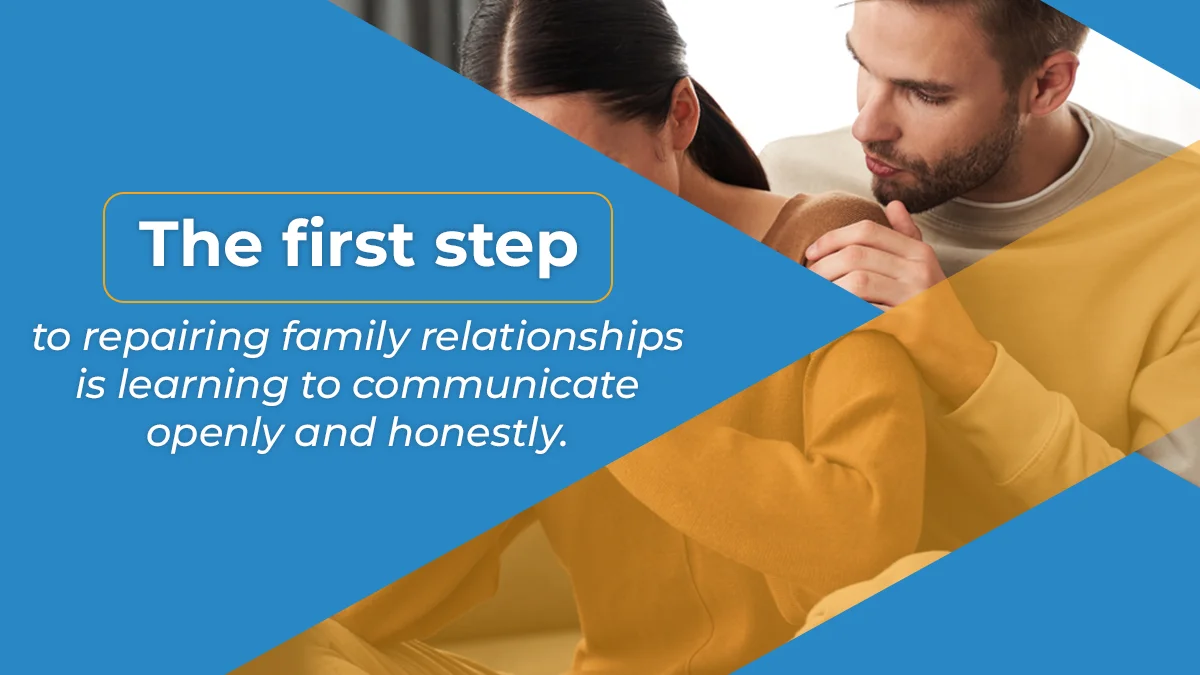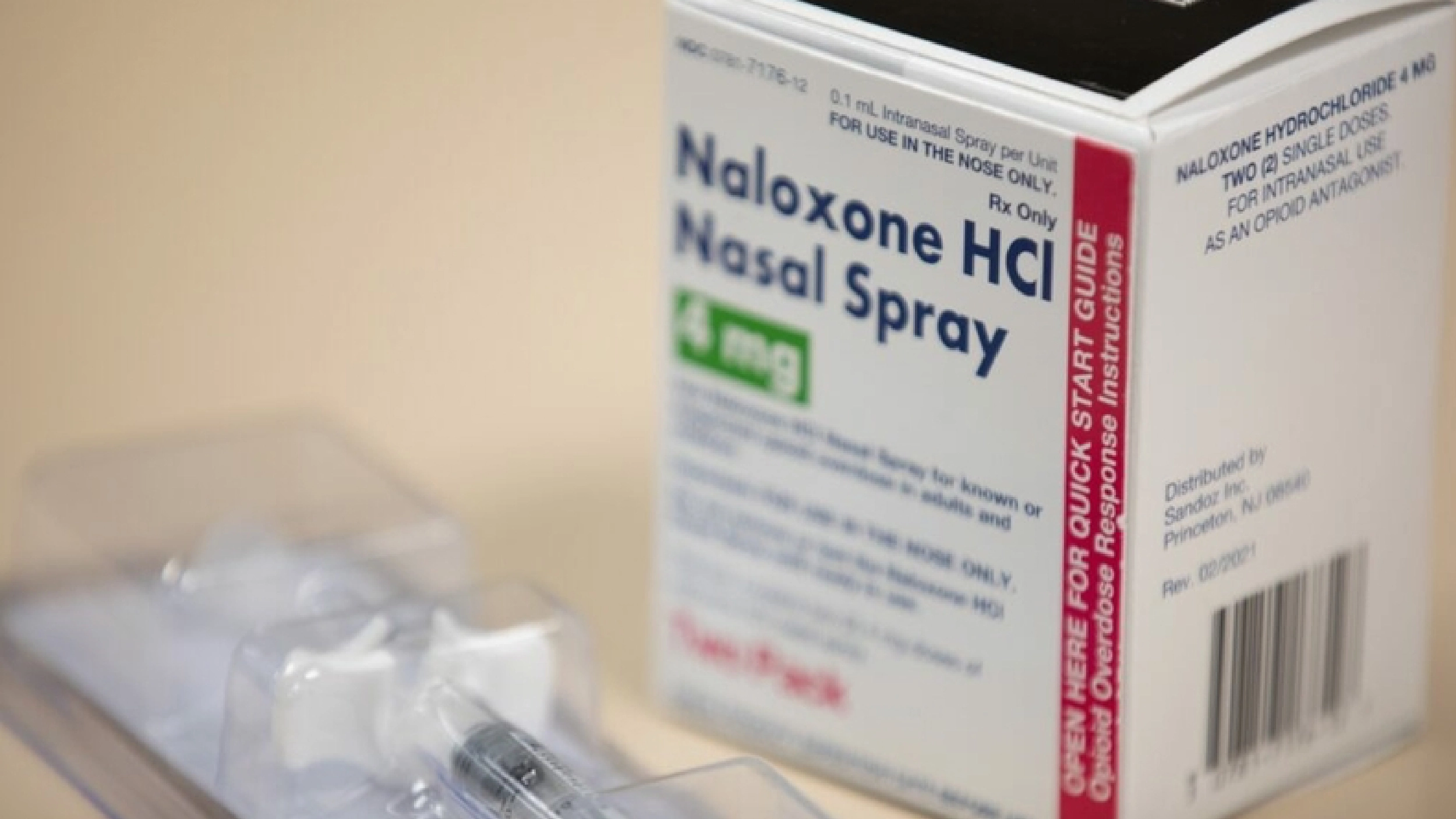A Guide To Repairing Family Relationships
Repairing family relationships can be a complex yet rewarding journey. Whether strained by misunderstandings, conflicts, or mental health challenges, rebuilding these bonds requires patience, empathy, and open communication.
It often involves acknowledging past hurts, forgiving each other, and committing to positive changes. Through this process, families can strengthen their connections, deepen their understanding of one another, and create a more supportive and loving environment.
Key Takeaways
Every family dynamic is unique, so finding what works best for your situation is essential. Here’s what you need to know:
- Open communication and empathy are key to repairing family relationships, allowing for understanding and healing.
- Building trust and setting boundaries is crucial in repairing family relationships and fostering healthier dynamics.
- Seeking therapy or counseling can provide valuable tools and guidance in repairing and strengthening family bonds.
Contact The Recovery Team at (800) 817-1247 for further assistance to embrace a healthier and happier tomorrow.
Importance Of Identifying Issues In A Family Relationship
Identifying issues in a family relationship is crucial for fostering understanding and growth. It allows individuals to address underlying problems, improve communication, and strengthen bonds. Families can work together to find solutions, build trust, and create a supportive environment by recognizing and discussing issues.
This process can lead to healthier relationships, improved mental health, and a more harmonious family dynamic. Addressing issues early can prevent them from escalating and help family members feel heard and valued.
Initial Steps To Repairing Family Relationships
Repairing family relationships can be challenging but rewarding. Begin by acknowledging the issues and expressing a genuine desire to mend them. Take the initiative to reach out and initiate conversations. Approach these discussions with an open mind and a willingness to listen.
Communicating Openly And Honestly
Open and honest communication is key to rebuilding trust and understanding within a family. Practice active listening, which fully concentrates on what the other person is saying without judgment or interruption.
Share your thoughts and feelings honestly, using “I” statements to express yourself without blaming others.
Admitting Negative Behavior Patterns
Recognizing and admitting negative behavior patterns is a crucial step toward change. Acknowledge any harmful behaviors you’ve engaged in and take responsibility for them. Reflect on the impact of these behaviors on your family and commit to making positive changes.
Seeking support from a therapist or counselor can also help address and change addictive behavior patterns. These initial steps can lay the foundation for repairing and strengthening family relationships, fostering a healthier and more supportive environment for everyone involved.
Role Of Professional Help In Repairing Family Relationships
Professional help plays a crucial role in repairing strained family relationships. Trained therapists provide a safe space for families to express their feelings and concerns. They help identify underlying issues and teach effective communication and conflict-resolution skills.
By facilitating open and honest dialogue, therapists guide families towards understanding and empathy, fostering healthier relationships.
Benefits Of Family Therapy
Family therapy offers numerous benefits for families experiencing conflict or dysfunction. It helps improve communication among family members, leading to better understanding and empathy. Family therapy also helps identify and address unhealthy patterns of behavior.
By involving the entire family, therapy promotes a sense of unity and strengthens relationships. Additionally, it provides a supportive environment where families can work through issues together, leading to long-lasting positive changes.
How Mediation Can Help Solve Disputes
Mediation is a beneficial tool for resolving disputes, especially within families. Mediators act as neutral third parties, facilitating discussions and helping parties reach mutually acceptable solutions. Through mediation, families can address underlying issues and find common ground.
Mediators also help reduce conflict and improve communication, leading to more harmonious relationships.
Practical Solutions For Mending Broken Family Relationships
Mending broken family relationships can be challenging, but it is possible with practical solutions. Start by listening actively to each family member’s perspective to understand their feelings and needs. Practice empathy and avoid blame to create a safe space for communication. Set realistic expectations and be patient; healing takes time.
Consider family therapy or counseling to facilitate open dialogue and address underlying issues. Remember, forgiveness is a process, not an event.
Using Family Bonding Activities To Connect
Family bonding activities can strengthen relationships and create lasting memories. Try outdoor activities like hiking or picnicking to enjoy nature together. Cooking or baking as a family can be fun and educational.
Board games or movie nights at home encourage quality time and laughter. Volunteering together promotes empathy and teamwork. Whatever activity you choose, create a positive, inclusive environment where everyone feels valued and supported.
Incorporating Regular Family Meetings Into Your Routine
Regular family meetings can improve communication and strengthen relationships. Choose a convenient time when everyone can participate. Have an agenda to discuss important topics and solve issues as a team.
Encourage each family member to share their thoughts and ideas. Celebrate achievements and milestones together. By making family meetings a routine, you’ll create a sense of unity and cooperation within your family.
Importance Of Setting Boundaries In Repairing Relationships
Setting boundaries is crucial in repairing relationships because it establishes clear guidelines for individual interactions. When boundaries are undefined or not respected, misunderstandings and conflicts can arise, hindering the healing process.
By setting and respecting boundaries, individuals can rebuild trust and create a healthier dynamic in their relationship.
Defining And Respecting Personal Boundaries
Personal boundaries are the limits and guidelines a person establishes to protect their mental, emotional, and physical well-being. These boundaries define how individuals want to be treated by others and what behaviors are acceptable or unacceptable.
Respecting personal boundaries means acknowledging and honoring these limits, which fosters mutual respect and understanding in relationships.
Building Healthy Interactions Through Boundaries
Setting and maintaining boundaries is essential for building healthy interactions in relationships. Clear boundaries help individuals communicate their needs and expectations, which leads to more respectful and fulfilling relationships.
When boundaries are respected, individuals feel safer and more secure, allowing for deeper connections and emotional intimacy.
Role Of Forgiveness In Repairing Family Relationships
Forgiveness plays a crucial role in repairing family relationships destroyed by addiction. It allows family members to let go of resentment and anger, creating space for healing and reconciliation. When individuals forgive each other, it fosters empathy and understanding, strengthening the bond between family members.
It also helps to rebuild trust, which is essential for maintaining healthy relationships within the family.
Accepting Mistakes And Moving Forward Together
Accepting mistakes is an important part of forgiveness and repairing family relationships. It requires acknowledging one’s faults and shortcomings and understanding and empathizing with the mistakes of others.
By accepting mistakes, family members can move forward together, focusing on rebuilding their relationship rather than dwelling on past grievances. Accepting and moving forward together can lead to greater understanding and empathy among family members.
Impact Of Forgiveness On Personal And Family Health
Forgiveness has a profound impact on personal and family health. When individuals forgive, it reduces stress and anxiety, leading to improved mental health. It also promotes emotional well-being, fostering positive feelings and relationships within the family.
Additionally, forgiveness can lead to better physical health, as the reduction in stress and anxiety can lower the risk of developing health problems such as high blood pressure and heart disease.
Maintaining Improved Family Relationships
Consistency in communication and actions is key to maintaining improved family relationships. By consistently communicating openly and honestly, families can build trust and understanding. This involves active listening, expressing feelings, and addressing issues promptly.
Additionally, being reliable and following through on commitments helps strengthen bonds within the family.
Consistency In Communication And Actions
Consistency in communication and actions is crucial for fostering healthy family dynamics. This means keeping promises, being dependable, and maintaining open lines of communication. Family members can feel secure and valued by consistently showing care and support.
This consistency helps prevent misunderstandings and conflicts, promoting harmony within the family unit.
Celebrating Progress And Continuing Growth
Celebrating progress and continuing growth is essential for maintaining positive family relationships. Recognizing and celebrating achievements, no matter how small, fosters a sense of accomplishment and motivates further improvement.
Additionally, embracing change and encouraging personal growth within the family contributes to its well-being. Families can build a strong foundation for a harmonious and fulfilling life together by celebrating progress and encouraging continued growth.
Build A Stronger Future With The Recovery Team
Discover a path to lasting recovery with The Recovery Team.
Our residential and outpatient treatment programs are tailored to support your unique needs, guiding you toward healing and resilience.
Take the first step towards a brighter future. Contact us at (800) 817-1247 today to find the support you deserve.






